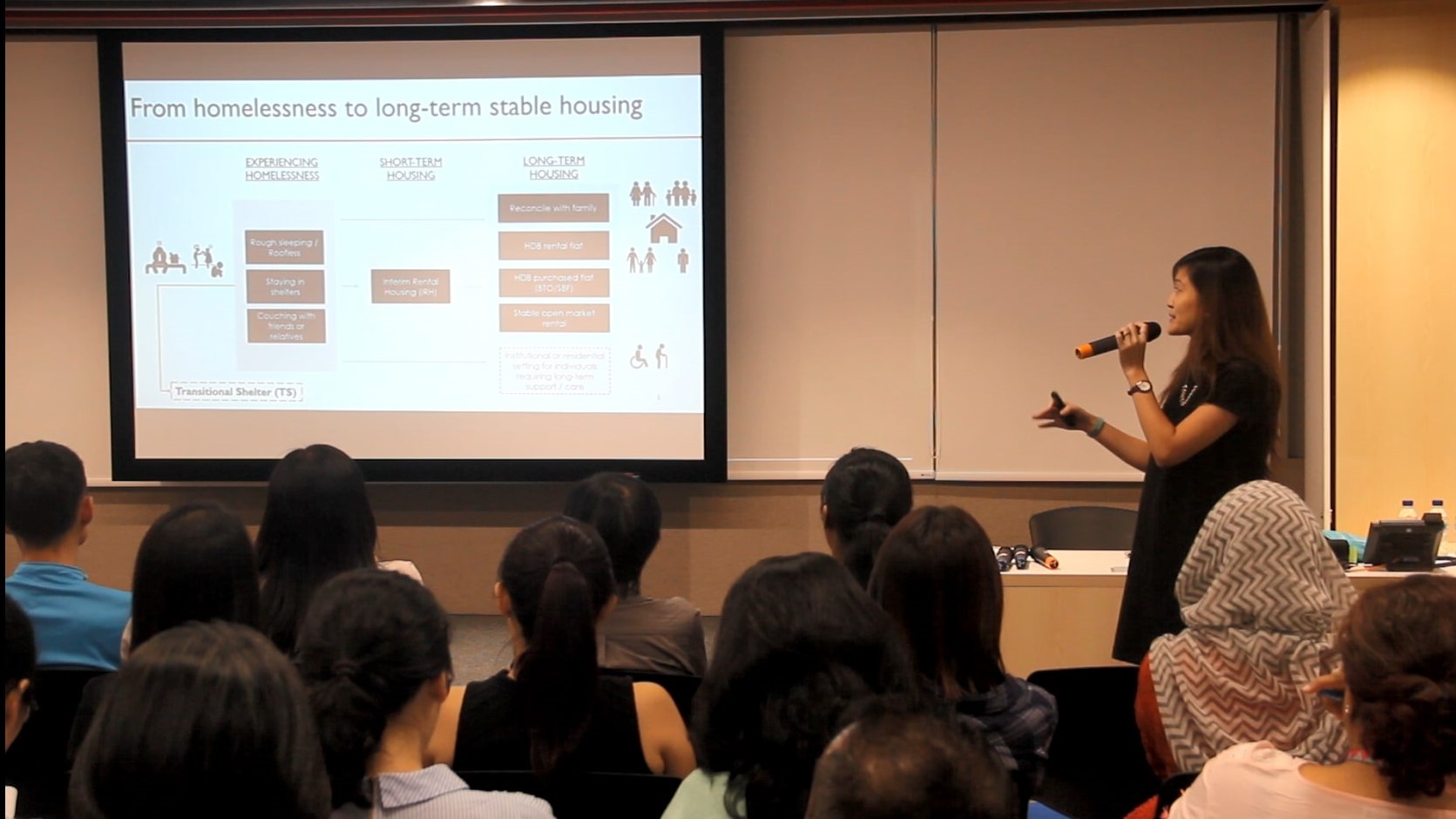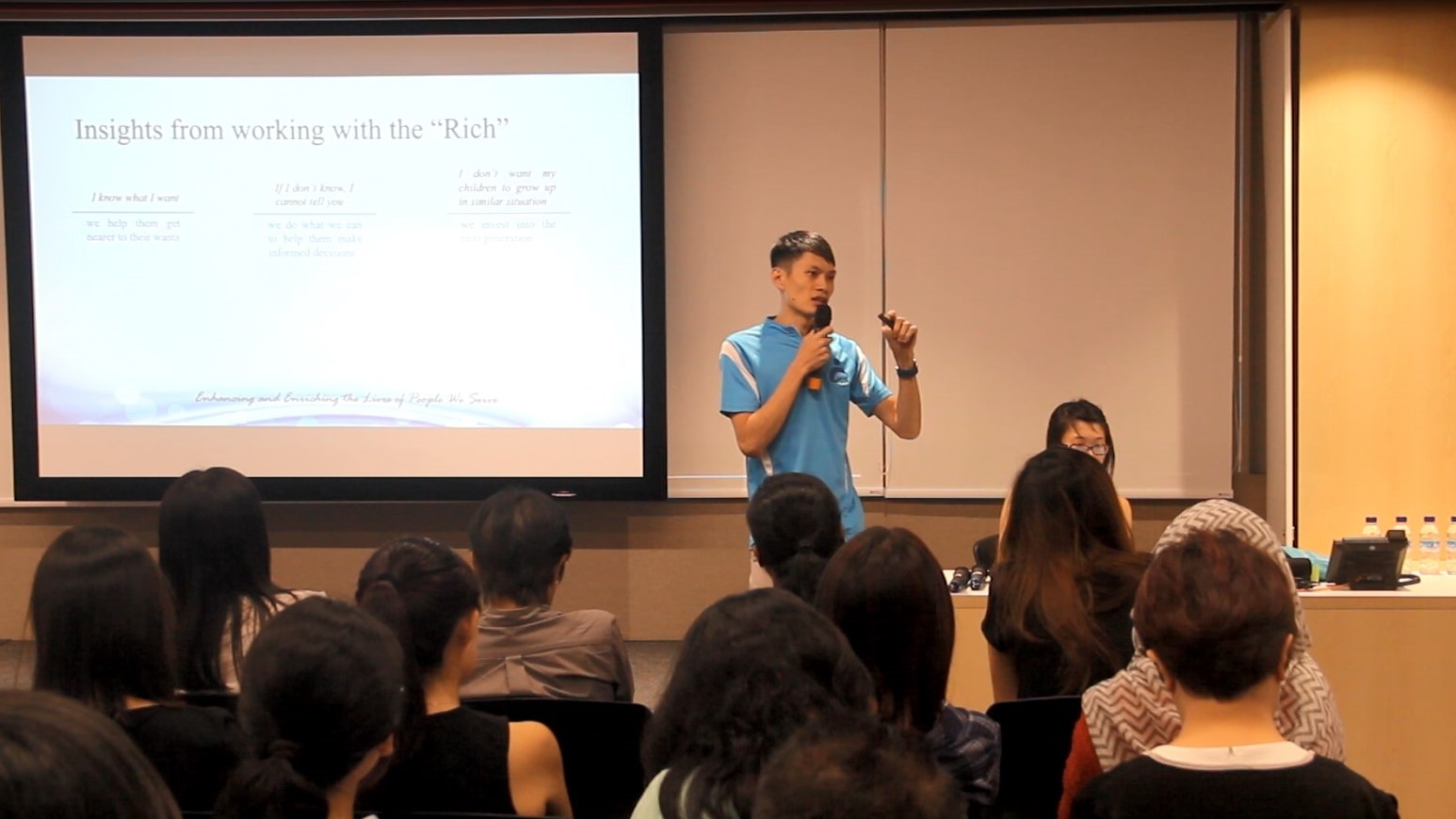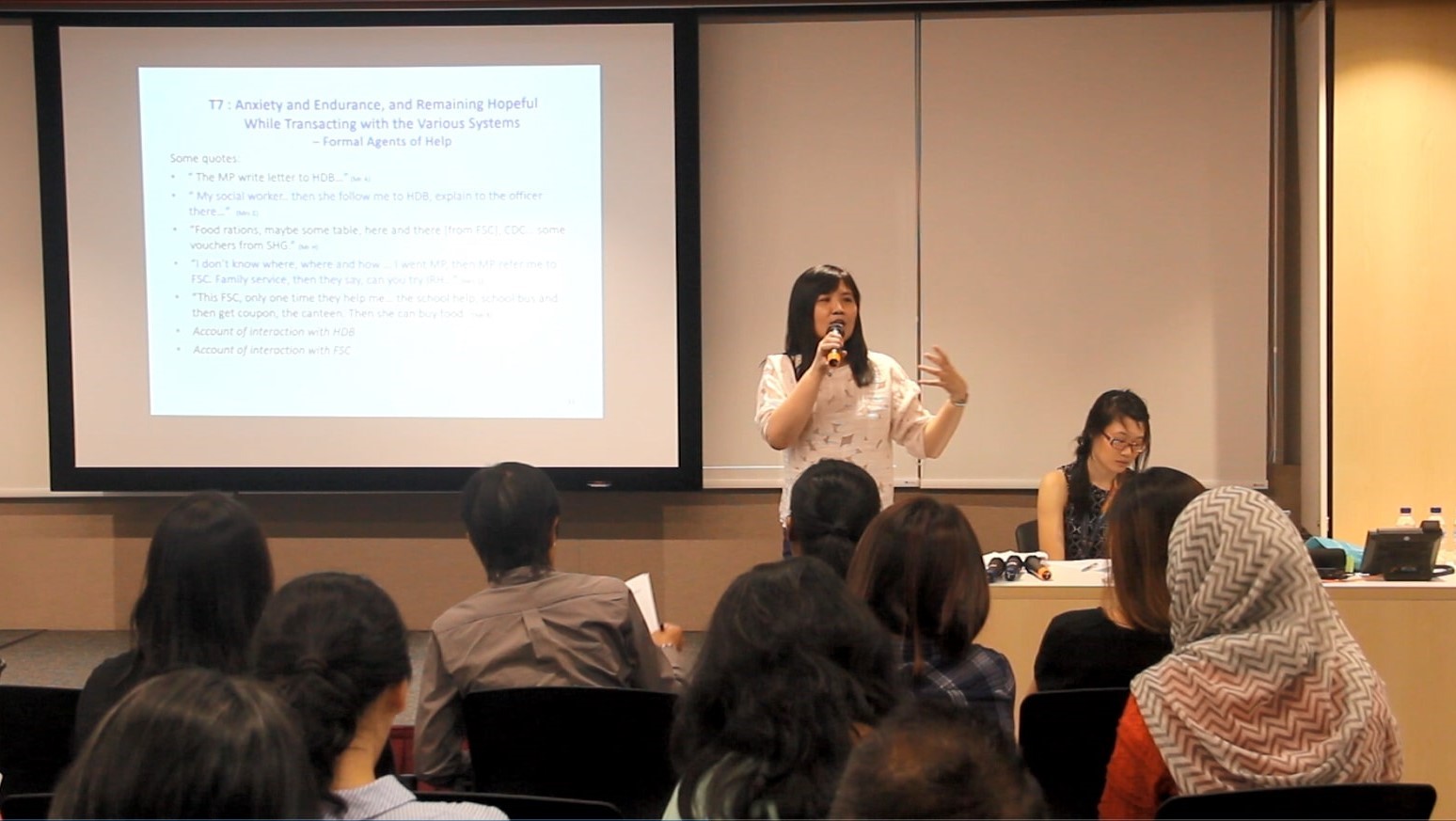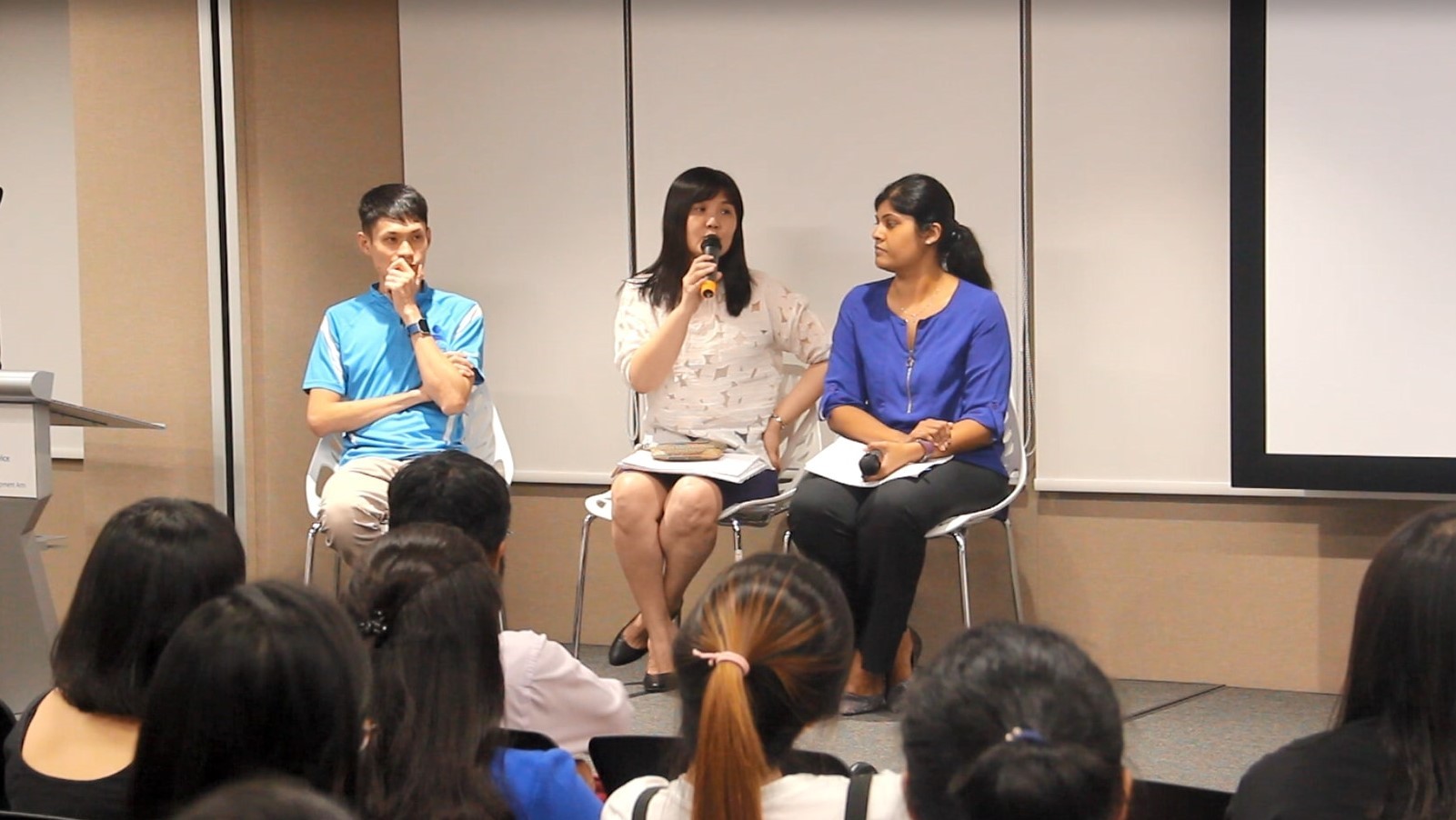Mining Deep, Scaling Heights, Session: More Than Just a House: Perspectives of Journeying With Families With Housing Issues
On 29 May 2017, a team of social service practitioners shared their various perspectives on journeying with families with housing issues in the session “More Than Just a House: Perspectives of Journeying with Families with Housing Issues”. The session aimed to help participants learn more about the homeless scene in Singapore, the structures in place to support them, as well as the skills and knowledge that are useful in working with families facing housing issues.
Speakers:
1. Ms Amanda Lau – Assistant Manager, Social Policy and Services Group, Ministry of Social and Family Development
2. Mr Isaac Teo – Centre Manager, AMKFSC Transition Plus
3. Dr Teo Poh Leng – Senior Lecturer, Social Work, Singapore University of Social Sciences
Designations as of 29 May 2017.




Who are the Homeless?
- People who have lost their homes. These people may live on streets, shelters, or be constantly moving from place to place. They may have been abandoned by their families, or evicted due to their inability to afford their mortgage/rent, etc.
Where/ How do the Homeless Live?
- Rough sleeping/ roofless conditions
- Staying in shelters
- Couching with friends or relatives
Various Issues Underlying Homelessness
- Family/ marital conflicts/ divorce
- Lack of family support
- Inability to pay mortgage/rent
- Mental health challenges
- Overcrowded conditions
Common Experiences of Families Facing Housing Issues
- Children’s well-being and family’s future are sometimes compromised by their lack of permanent housing
- High stress, anxiety, depression and suicidal thoughts
- Lack of physical, practical, and emotional support from kin
Transitional Shelters
- Homeless families or individuals can seek temporary accommodation at Transitional Shelters, funded by MSF. During their stay in Transitional Shelters, FSCs and social workers will work with families as they transit into more stable long-term housing.
What Can We Do When Working With Families With Housing Issues?
- Translate stories into objectives when approaching cases. Be objective about the goals that the family can work towards when negotiating with other organisations, such as Housing Development Board (HDB).
- Negotiate for a closed door to be re-opened, even if the initial application or request was rejected.
- Help clients understand why they were rejected so that they know what can work on.
- Work with relevant networks and authorities in the process of assisting clients. Build a system that allows members of different fields to come together to effectively advocate for families in need.
WHAT TO READ NEXT
- MDSH Session: KIDS 0-3: Collaborative Practice in a Trans-Disciplinary Home Visitation Programme
- MDSH Session: Approaches, Principles and Practice in Working With Persons With Disabilities
- MDSH Session: Partnering Across Disciplines: Educational Psychology and Social Work
- MDSH Session: Working With Vulnerable Families and Systems: Insights From the Strengthening Families Together Pilot
- MDSH Session: When Community Gets Real